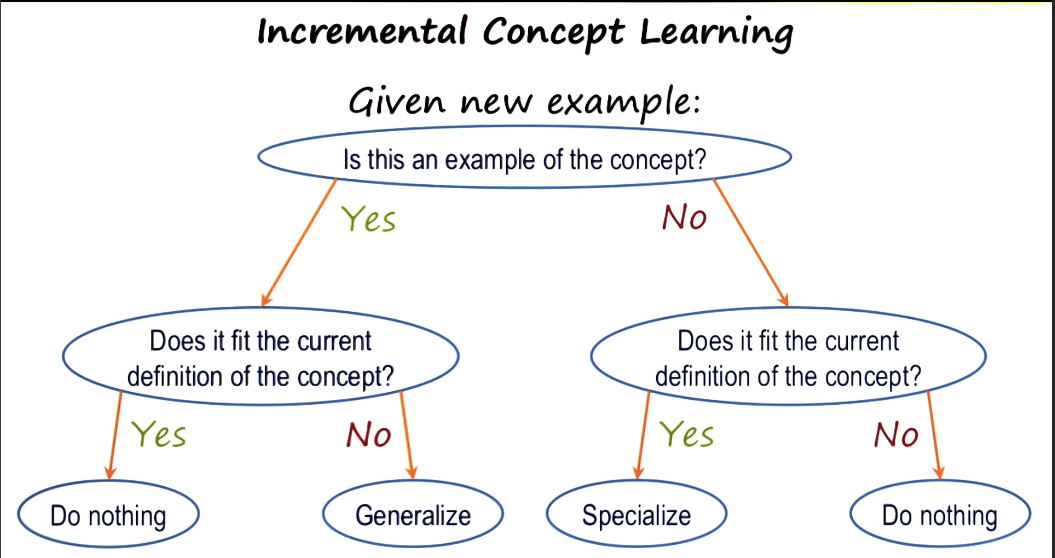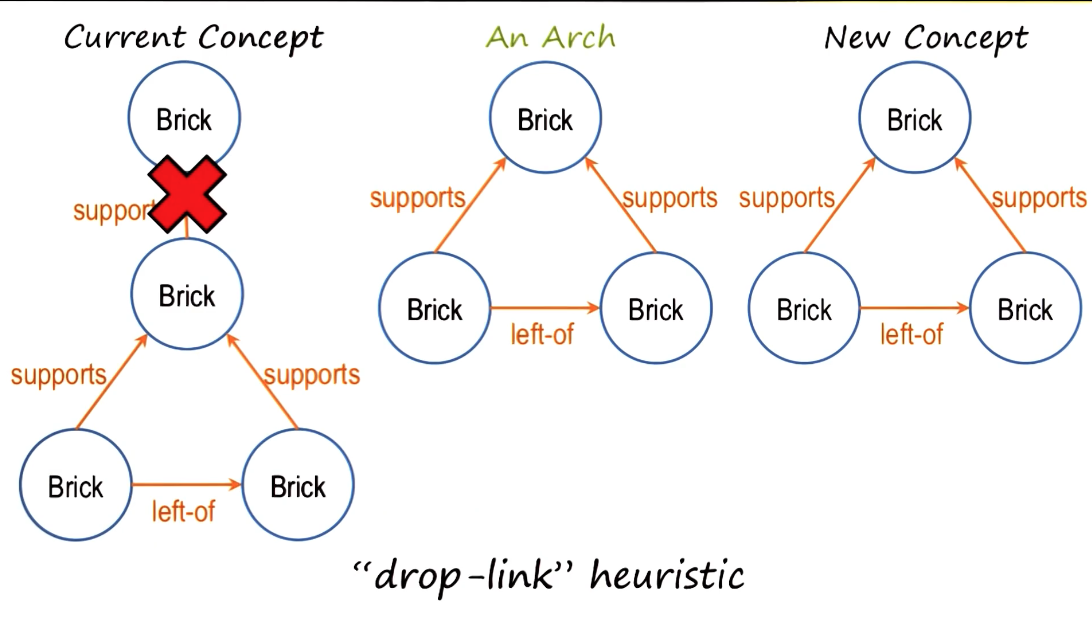Incremental_Concept_Learning
- Makes strong use of background knowledge
1) Learning is incremental 2) Examples are labeled (supervised) 3) Examples can come in a particular order, positive then negative maybe 4) Different from case-based reasoning as it uses abstract concepts 5) Number of examples to abstract concepts from is small 6) Generalize / Specialize trade-off

Variabilization

Take a concrete concept like bricks stacked like a house and create abstract variables like Brick and relationships like supports and left-of
Specialization
- Require link heuristic, where some links are necessary to represent things not represented by a negative supervised example
- Forbid Link Heuristic, opposite of require link, shows as logical not in link name
Generalization
- Drop link heuristic, where we want to drop a link to turn somethin from too specific to more general is shown in Variabilization
- Enlarge-Set Heuristic, where a node is combined to be several possible types
- Climb-Tree Heuristic, where a type has inheritance, a block is an example of a brick or a wedge. IMPORTANT THIS IS DIRECTED AND NOT BI-DIRECTIONAL
- Close-Interval, expand range of values to be a positive example of the concept